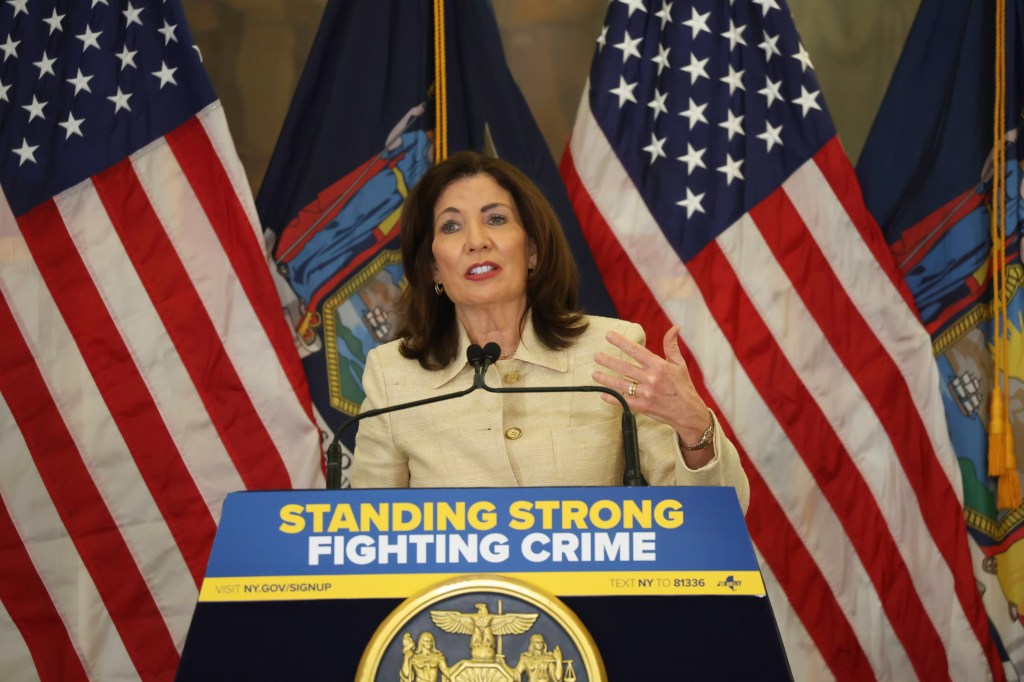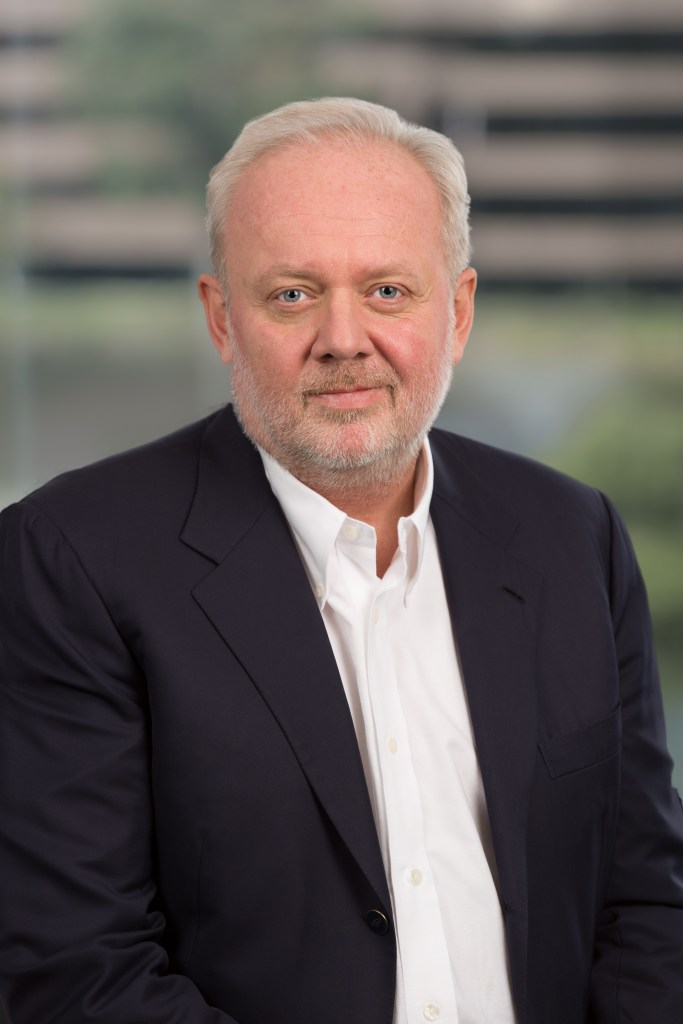A pioneer of New York’s legal marijuana sales to medical patients has accused Gov. Kathy Hochul and state regulators of being “un-American” for allegedly thwarting his and other such businesses.
Boris Jordan, a Long Island native, is the founder and CEO of Curaleaf, one of the first companies to open “seed to sale” cannabis stores for medical patients in New York a decade ago.
But he said that in recent years, Hochul and the state’s cannabis regulators have been hell-bent on “destroying” his and other such businesses by making it more difficult for them to get licenses to sell marijuana to healthy adult customers, too, as now allowed by law.

“New York is directly targeting and hurting our business,” Jordan told The Post. “New York asked us to invest in the market, and now they’re trying to bring us down.
“It’s very un-American, to be honest. It’s not the country I grew up in. They asked us to invest, and now they want to destroy us,” he said.
Medical cannabis firms have to pony up money to the state when they want to convert one of their stores for regular adult-use sales — and that figure could hit up to a whopping $15 million for just three conversions, depending on a business’s revenue.
Six of the 10 original, licensed, medical marijuana firms in the state have opted not to enter the regular adult use market because of the added costs, said Jordan — who has five cannabis dispensaries is New York, including one in the city, in Forest Hills, Queens.
State regulators have failed to crack down on illicit weed being imported from other states that are ending up in licensed stores, too, he said.

All cannabis sold in the Empire State must be grown and cultivated in New York under its “seed to sale” law.
But some farmers and sellers are skirting the law by using cheaper out-of-state seeds and weed, making it more difficult for law-abiding cannabis operators to compete on pricing, Jordan said.
“The state is not doing anything about it,” the businessman said. “It’s an abomination.”
He said Albany has turned against law-abiding cannabis pioneers to make way for licenses to operators with pot convictions and other “social equity” applicants.
“I’m not against competition. I’m against discriminatory competition,” Jordan said.
“They did everything to shut us out of the industry,” he said of state officials.
But the social-equity pot licensees worry that large, well-resourced multi-state firms such as Curaleaf — which has a presence in more than 12 other states and even some other countries — will gobble up market share and put them out of business if allowed to dramatically expand into the adult use marketplace.
New York launched sales of cannabis for medicinal purposes in 2016, including for people with cancer, Parkinson’s disease, multiple sclerosis, autism, chronic pain, rheumatoid arthritis among other maladies.
The law legalizing sales of marijuana for recreational or adult use in New York was approved in 2021 and launched in late 2022.
The number of patients prescribed to receive cannabis for medicinal use has plummeted from 150,000 patients in 2021 to 95,000 — collapsing the market, as the number of regular adult-use cannabis shops increased.

There are now 32 medical cannabis dispensaries, down from a high of 38.
By comparison, there are 380 licensed regular adult-use pot shops.
The pioneers — the organizations originally licensed in the medical cannabis program — have sued the state over requiring them to pay millions of dollars for the right to enter the broader adult market.
Meanwhile, the state’s regulator — the Office of Cannabis Management — has said it is investigating licensed cannabis operators suspected of using out of state weed, including pot used in vapes.
Nearly 120 quarantines of licensees’ products have been issued since last year, with nearly 10% resulting in product destruction by OCM’s 15-member trade practices bureau, a rep said.
Products in stores are taken off the shelves pending results of the probes
Forty percent of the quarantines remain in effect.
“OCM has received allegations that both finished products and product inputs are being inverted into the legal market from unlicensed out-of-state sources,” the OCM said in a statement. “OCM takes inversion seriously as the practice undermines the integrity of the New York market and consumer confidence and subverts the social and economic equity goals of legalization.
“To enhance oversight and market integrity, OCM will phase-in its launch of a seed-to-sale tracking and accountability system in the second half of 2025, in addition to continuing to do on-site compliance inspections.”
Hochul’s office defended requiring medical marijuana operators to buy their way into the regular adult market, noting they have competitive advantages because they grow, cultivate and sell their own cannabis from their stores.
“The State values our medical operators who are vital partners in ensuring patients across New York have access to quality, tested products to meet their medical needs,” said Hochul representative Kassie White. “[Registered organizations for medical cannabis]] have brought good union jobs, sound market infrastructure and expertise that have laid the foundation for New York’s cannabis economy.”
But medical cannabis operators also hold a “unique and exclusive license” allowing them to operator a “vertically integrated business, a model that gives them “distinct advantages” over other cannabis retail dispensaries, such as over pricing,” the rep said.
“New York looks forward to medical operators continuing to play a vital role in the State’s rapidly expanding billion dollar market,” White said.
The post Medical pot pioneer rips ‘un-American’ Hochul, NY regulators for allegedly thwarting businesses: ‘Want to destroy us’ appeared first on New York Post.




